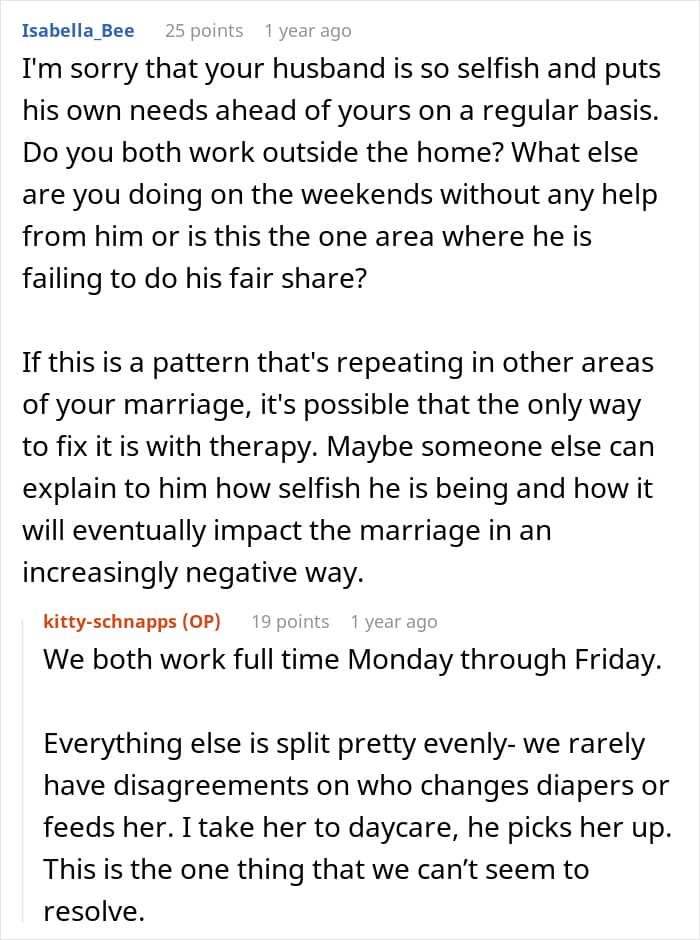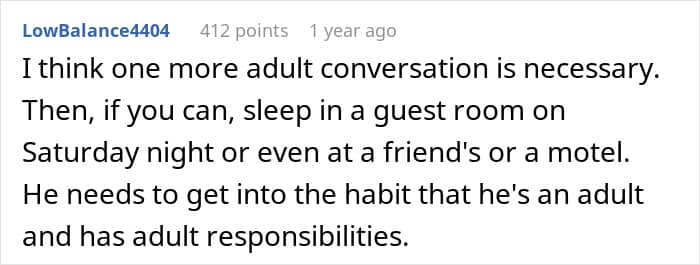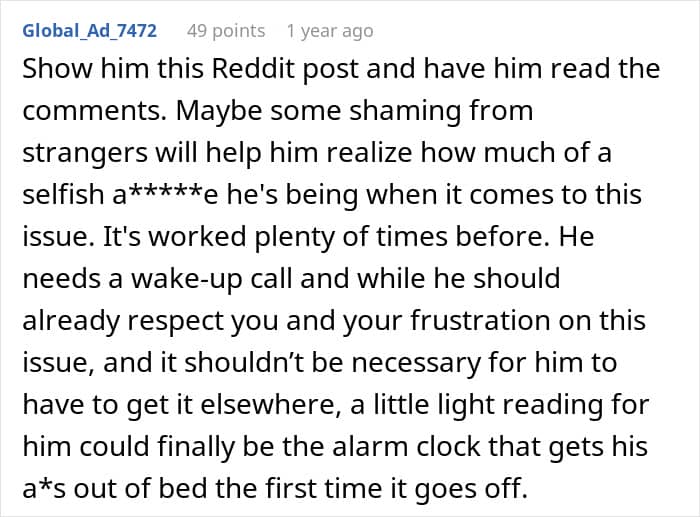There’s a sacred ritual in every household with toddlers, the desperate, fleeting hope of a “sleep-in day”. Unfortunately, sometimes your co-parent is less of a Powerball partner and more of a living, breathing snooze button with selective hearing and very loose definitions of time.
That’s the predicament today’s Original Poster (OP) found herself in. She and her husband had a clear plan: one day each on the weekend to sleep in. However, what started as a fair deal quickly turned into a weekly test of patience, marriage, and morning willpower.
More info: Reddit
RELATED:Whether it’s splitting chores or divvying up weekend sleep-ins, honoring your end of the bargain can make all the difference in a relationship

A author and her husband agreed they would get one weekend day to sleep in—Saturdays for him, Sundays for her


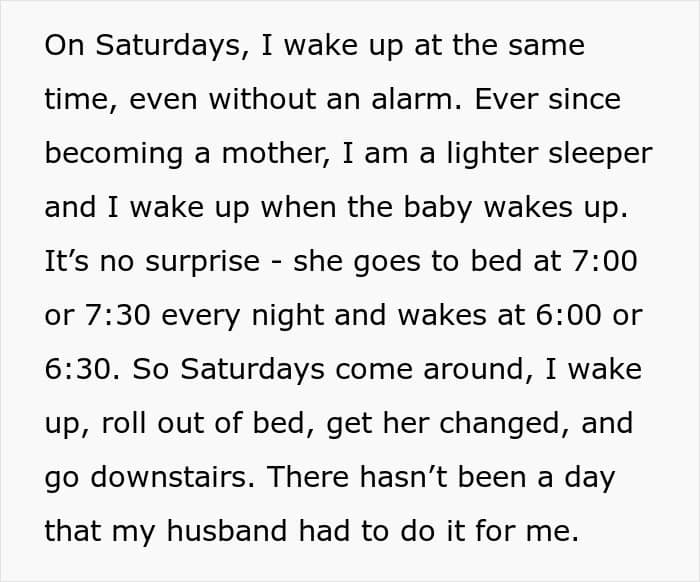


Her, now a light sleeper, always wakes early and takes care of their child on Saturdays without fail

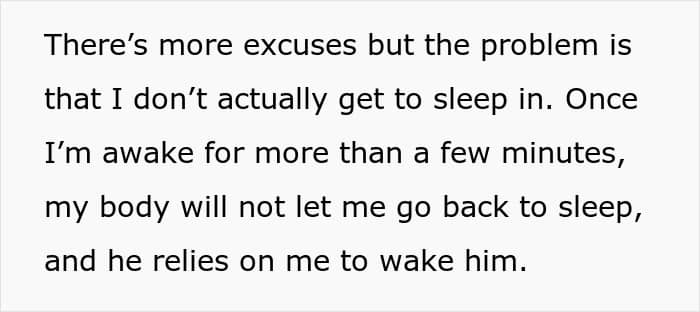
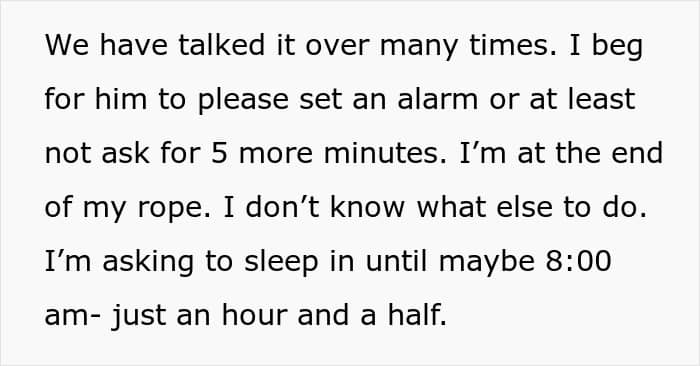
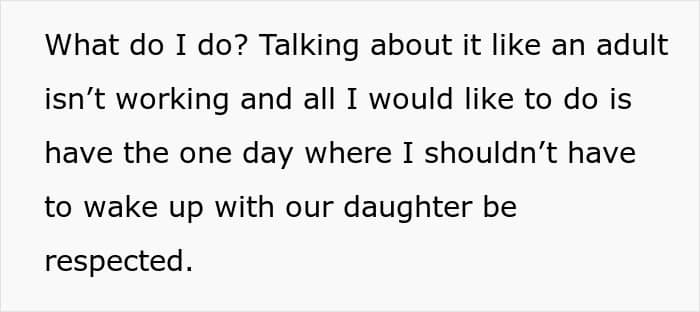

On Sundays, her husband repeatedly delays getting up, forcing her to stay awake and ruining her chance to sleep in

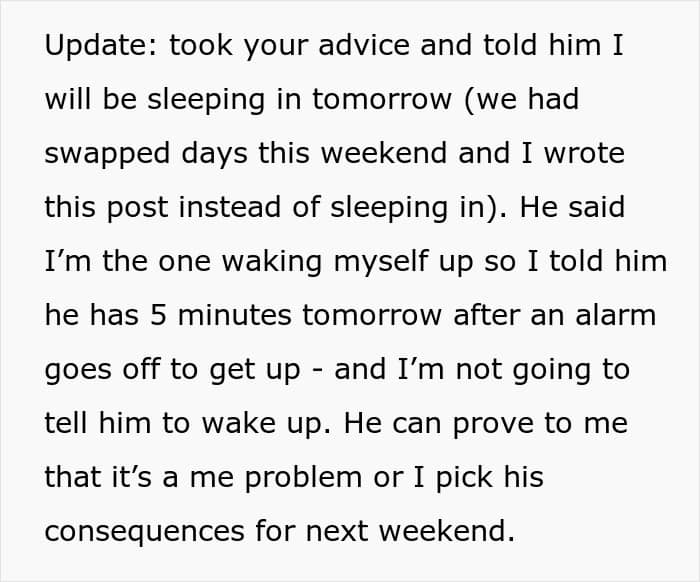
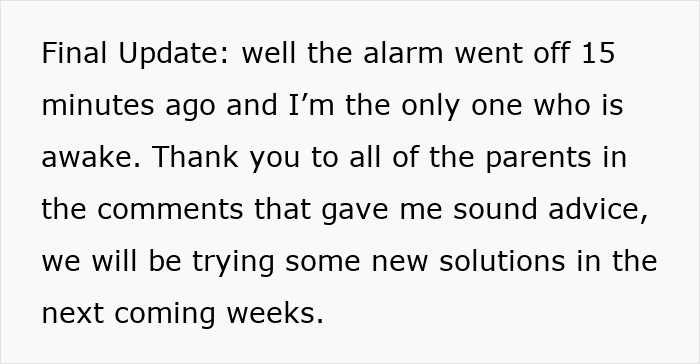

Now, she doesn’t get the chance to sleep in at all, and this has left her frustrated and emotionally drained at the imbalance
The OP and her husband welcomed their daughter nearly two years ago. When their baby finally began sleeping through the night, they made a straightforward agreement: he sleeps in on Saturdays, she gets Sundays. The idea was to give each of them a break on the weekend from the early toddler wake-up routine.
However, reality didn’t match the agreement. On Saturdays, she naturally would wake up around 6 a.m. when their daughter does. Her maternal instincts and lighter post-baby sleep patterns meant she was up regardless of alarms. So she would get out of bed, change the toddler, and start the day, letting her husband enjoy his uninterrupted rest.
When Sunday rolled around, it would be her turn to sleep in, hoping to sleep for just an extra 90 minutes. But her husband, the deeper sleeper of the two, wouldn’t get up when the baby wakes, rather the OP would have to wake him. When she did, he would request for five more minutes, insist the baby wasn’t awake yet, or insist that the baby could wait.
At this point, the OP is now fully awake and once she’s up, she can’t fall back asleep so her one chance at rest vanishes. Again. She mentioned that she has talked to her husband more than once. She’s explained that she can’t sleep once she’s awake, and that she needs him to get up when it’s his turn without pushing it off.
She’s also asked him to set an alarm. She’s pleaded for him to not rely on her to wake him up like a human snooze app. However it keeps happening, and now, she’s now at her wit’s end, not sure what else to do.

According to the BBC, emotional and domestic responsibilities in heterosexual relationships, especially with children, often fall disproportionately on women. While these tasks may seem minor individually, they accumulate significantly. They also state that even couples who believe they’ve achieved equality often overlook how these hidden burdens are still primarily carried by the woman.
Parents also acknowledge that mothers, regardless of whether they work outside the home, are often the default parent in heterosexual households. This means they are typically seen as the primary caregiver, responsible for managing childcare, household tasks, and key decisions. However, they warn that this often leads to frustration and burnout.
Undoubtedly, motherhood brings a lot of joy, however, it also comes with some of the most physically and emotionally demanding adjustments, particularly due to sleep deprivation. Omega Pediatrics affirm this and explain that new mothers often struggle with irregular sleep schedules leading to severe exhaustion, memory issues (commonly called “mommy brain”), and physical discomfort.
They further highlight that this sleep loss can have serious health effects, not just minor inconveniences. During this time, strong support from family, especially from a present and involved husband, is crucial to help mothers cope with the demands of early parenthood.
Netizens expressed frustration over the OP’s husband’s unwillingness to share childcare duties. They suggested practical actions, like switching sleep-in days, or even leaving the house to ensure rest. They also pointed out deeper concerns especially regarding her husband’s emotional unavailability or immaturity, and how that imbalance can lead to resentment or burnout.
What would you do if you were in the OP’s shoes? How might you communicate your discomfort? We would love to know your thoughts!
In an update, the author stated that this isn’t grounds for divorce even though some netizens insisted it’s the way to go


